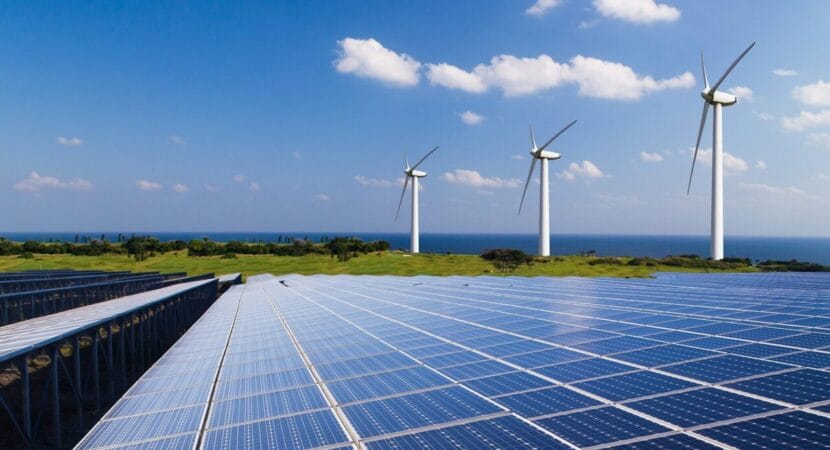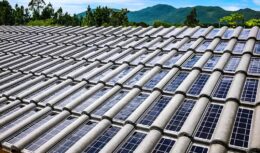
A recent survey revealed that more than 80% of industries established in Brazil are implementing actions to reduce waste, energy consumption and water use. This demonstrates a significant commitment to environmental sustainability and the country's sustainable development.
It is necessary to understand that the initiative is a measure that complements other green agendas, such as increasing the use of renewable energy, strengthening the national biofuels policy and, above all, reducing illegal deforestation.
The authorization of a controlled carbon market, discussed in the Chamber of Deputies, is seen as something 'important or very important' by 78% of survey participants.
“The creation of a regulated carbon market that includes, for example, the participation of companies in decision-making and does not incorporate excessive punishments and fines, will help the country achieve the climate goals established in the Paris Agreement in the long term”, declared the director of Institutional Relations at National Confederation of Industry (CNI), Roberto Muniz.
Interest in sustainable technologies in factories
When it comes to sustainable production in industrial facilities, 75% of companies expressed interest in obtaining credit lines to implement new green technologies.
Another 66% stated the need to acquire new low-carbon technologies, while 59% expressed interest in modernizing their equipment to achieve energy targets. decarbonisation.
In this sense, the majority of companies (88%) consider the performance of public authorities to be insufficient, as they believe there is a lack of tax incentives to promote this type of transition.
O private financing proved to be more viable for businesspeople: 24% sought it and 15% obtained it. For 62% of respondents, obtaining financing for sustainable ventures is considered difficult or very difficult.
Difficulty in accessing credit or financing is listed as the third biggest barrier to implementing sustainable actions (cited by 22%), second only to the lack of government incentives (51%) and the absence of a culture of sustainability process in the consumer market (39%).**
Sources such as Biomass (5%), wind energy (3%) and low-carbon hydrogen (1%) are the subject of study by companies looking for sustainable alternatives.
According to the CNI analysis, it is essential to expand access to industryfinancing options, with the aim of boosting the low carbon economy and promote the escalation of green technologies.
Although 67% of respondents expressed interest in obtaining credit lines With this purpose, not everyone realized this intention. Only 16% sought some type of public credit support for sustainable projects, and only 6% were successful in this regard.
The source of solar energy is the one that arouses the greatest interest among industrial entrepreneurs, according to a survey. In the general sample, 75% of those interviewed demonstrated that they had a lot or some interest in adopting this type of energy source.
In second place, interest falls on green or low-carbon hydrogen, with 19% interest, followed by wind energy, with 13% interest.
The research also reveals that more than half of industrys, that is, 53%, already have projects related to the use of renewable energy sources, with solar energy being the most prominent, accounting for 91% of ongoing projects.
Ricardo Alban highlights the leadership of industry Brazilian in sustainability process
According to the president of the CNI, Ricardo Alban, the industry of Brazil is ahead of other countries in terms of initiatives related to sustainability process and adaptation to climate change.
He emphasizes that “our industry, especially those that consume a lot of energy, like cement, for example, has already done its part and has a lot to share with the world. To the greenhouse gas emissions of cement factories in the country are 10% smaller than the global average. In the aluminum sector, around 60% of all materials consumed in the country are recycled”, as an example.
In addition to ongoing strategies to improve energy consumption, nine in ten (89%) are focused on reducing energy generation. solid waste, while 83% are implementing measures to conserve water use.
These actions are the three main ones in a list of nine measures identified in the survey. Between the industryOf those who participated in the survey, 36% are adopting between 5 and 6 actions, and 22% are implementing between 7 and 8. Only 3% of industrial companies are not taking any measures related to sustainability process.
The effort made by companies to invest in sustainable practices is notable, seeking not only to reduce costs, but also to contribute to the preservation of the environment.
When asked about the most important actions for the industry contribute to the decarbonisation In the country, business leaders listed the modernization of equipment (27%), the use of renewable energy sources (23%) and investment in low-carbon technologies (19%).
Other measures mentioned included investment in innovation (14%) and access to financing (10%).
The survey consulted 1.004 executives from small, medium and large industrial companies in all federative units in the country. The survey was carried out by the Institute for Research in Reputation and Image, of FSB Holding, between the 3rd and 20th of November.
A study carried out by National Confederation of Industry (NIC) with businesspeople across the country, it was found that 86% of industrial groups implement actions to make energy use more efficient.
For the next two years, the investment priority is the use of renewable energy sources, mentioned by 42% of respondents, followed by updating equipment (36%) and implementing measures to optimize energy consumption (32%) .
These data indicate a growing concern in the industrial sector with the energy efficiency and the search for more sustainable alternatives in its operations.
Source: EPBR












